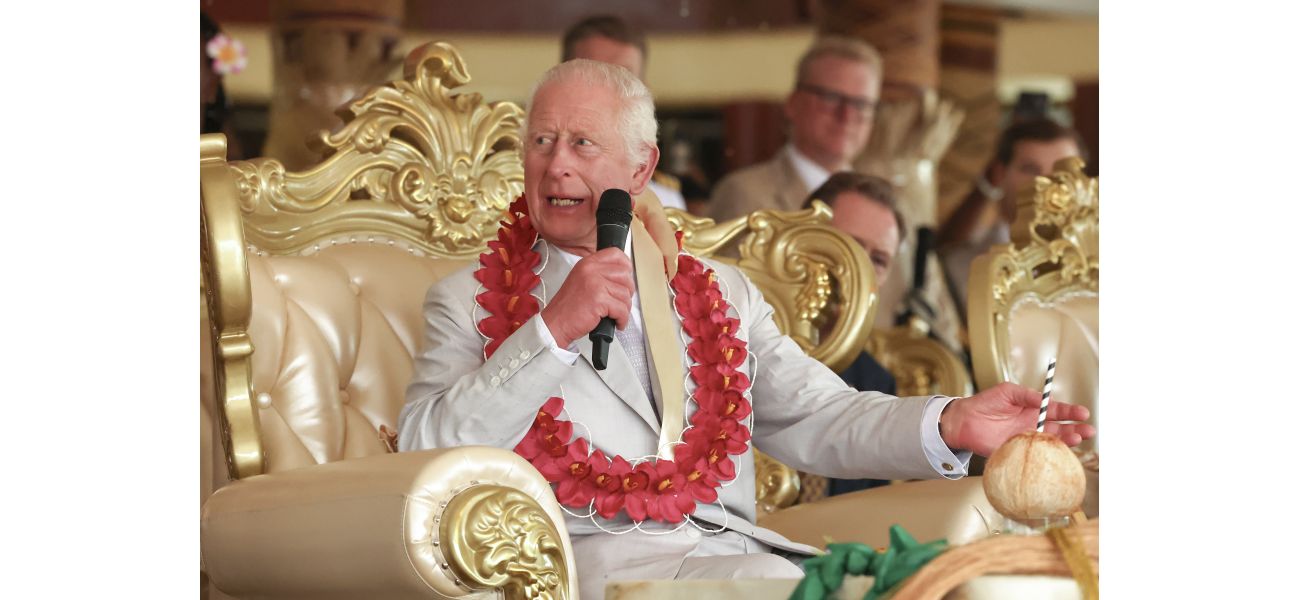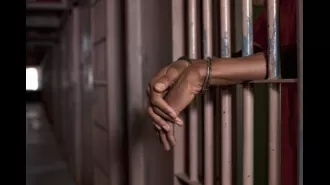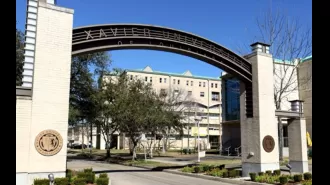During the summit attended by King Charles, nations agree to first ocean declaration.
The Apia Ocean Declaration urges all 56 Commonwealth countries to safeguard the ocean amidst pressing issues such as climate change, pollution, and overfishing.
October 26th 2024.

During the 27th Commonwealth Heads of Government Meeting (CHOGM), held for the first time in the Pacific island nation of Samoa, a significant moment was marked on Saturday as the Commonwealth countries adopted their first ocean declaration. This declaration, known as the Apia Ocean Declaration, was announced during the closing session of the summit and calls upon all 56 Commonwealth nations to take action in protecting the ocean from pressing issues such as climate change, pollution, and overexploitation.
Many of the Commonwealth members, including Samoa, are small countries facing threats from rising sea levels. This topic was a prominent theme throughout the summit, but it was not the only issue that was discussed. The transatlantic slave trade, a dark part of Britain's colonial history, also dominated the discourse during the opening days of the summit.
The Apia Commonwealth Ocean Declaration for One Resilient Common focuses on various measures, including recognizing maritime boundaries, protecting 30% of oceans, and restoring degraded marine ecosystems by 2030. It also emphasizes the urgency of finalizing the Global Plastics Treaty, ratifying the high-seas biodiversity treaty, and developing coastal climate adaptation plans. The declaration also highlights the importance of supporting sustainable blue economies.
According to Samoa's Prime Minister, Fiame Naomi Mata'afa, it was fitting for this declaration to be adopted in the Blue Pacific continent, as climate change has been recognized as the greatest threat to the security and well-being of its people. The Commonwealth represents a third of the world's population, and 49 of its 56 countries have a coastline. It is estimated that 25 of these members are already experiencing the impacts of climate change, such as rising sea levels, increasing temperatures, and ocean acidification, which in turn, affects sea life, ecosystems, and communities that rely on them.
Mata'afa emphasizes that this declaration must serve as a "line in the sand" for the world to come together and transform ocean exploitation into protection and sustainable stewardship. Outgoing Commonwealth Secretary-General, Patricia Scotland, also expressed her pride in this achievement, stating that it sets the standard for upcoming international meetings and generates momentum for ocean protection.
One of the most contentious issues at the summit was the call from some of Britain's former colonies for reparatory justice for the transatlantic slave trade. At the peak of this trade in the 18th century, Britain was the world's largest slave-trading nation, having transported more than 3 million Africans across the Atlantic. Its legacy is deeply ingrained in some of the country's most prominent institutions, including the Church of England, the insurance giant Lloyd's of London, and the monarchy itself.
Although King Charles III, who attended his first CHOGM as sovereign, did not mention financial reparations in his address, his words were seen as an acknowledgment of the strong sentiments surrounding this issue in countries that were once colonized by Britain. However, British Prime Minister Keir Starmer had previously stated that the UK would not offer an apology for slavery or discuss reparations. This promise was mostly upheld, although the final communique did call for discussions on the matter.
The official Leaders' Statement, which included 52 points, also urged for a "meaningful, truthful, and respectful conversation" to build a fair future. Additionally, the Commonwealth secretary-general was directed to engage with governments and stakeholders in reparatory justice consultations, with a particular focus on the impact on women and girls.
During a press conference in Apia, Starmer reiterated the UK's stance, stating that the time for conversation had come, but clarifying that none of the discussions during the summit were about money. He also expressed the UK's understanding that the slave trade and practice were abhorrent and emphasized the importance of acknowledging this fact.
On the final day of the summit, it was announced that Ghanaian foreign minister, Shirley Ayorkor Botchwey, would be the incoming secretary-general of the Commonwealth. Botchwey, who has been a vocal proponent of financial reparations for past enslavement, will replace Patricia Scotland of the UK, who has held the position since 2016. It was also revealed that Antigua and Barbuda will be the host country for the next CHOGM in 2026.
Many of the Commonwealth members, including Samoa, are small countries facing threats from rising sea levels. This topic was a prominent theme throughout the summit, but it was not the only issue that was discussed. The transatlantic slave trade, a dark part of Britain's colonial history, also dominated the discourse during the opening days of the summit.
The Apia Commonwealth Ocean Declaration for One Resilient Common focuses on various measures, including recognizing maritime boundaries, protecting 30% of oceans, and restoring degraded marine ecosystems by 2030. It also emphasizes the urgency of finalizing the Global Plastics Treaty, ratifying the high-seas biodiversity treaty, and developing coastal climate adaptation plans. The declaration also highlights the importance of supporting sustainable blue economies.
According to Samoa's Prime Minister, Fiame Naomi Mata'afa, it was fitting for this declaration to be adopted in the Blue Pacific continent, as climate change has been recognized as the greatest threat to the security and well-being of its people. The Commonwealth represents a third of the world's population, and 49 of its 56 countries have a coastline. It is estimated that 25 of these members are already experiencing the impacts of climate change, such as rising sea levels, increasing temperatures, and ocean acidification, which in turn, affects sea life, ecosystems, and communities that rely on them.
Mata'afa emphasizes that this declaration must serve as a "line in the sand" for the world to come together and transform ocean exploitation into protection and sustainable stewardship. Outgoing Commonwealth Secretary-General, Patricia Scotland, also expressed her pride in this achievement, stating that it sets the standard for upcoming international meetings and generates momentum for ocean protection.
One of the most contentious issues at the summit was the call from some of Britain's former colonies for reparatory justice for the transatlantic slave trade. At the peak of this trade in the 18th century, Britain was the world's largest slave-trading nation, having transported more than 3 million Africans across the Atlantic. Its legacy is deeply ingrained in some of the country's most prominent institutions, including the Church of England, the insurance giant Lloyd's of London, and the monarchy itself.
Although King Charles III, who attended his first CHOGM as sovereign, did not mention financial reparations in his address, his words were seen as an acknowledgment of the strong sentiments surrounding this issue in countries that were once colonized by Britain. However, British Prime Minister Keir Starmer had previously stated that the UK would not offer an apology for slavery or discuss reparations. This promise was mostly upheld, although the final communique did call for discussions on the matter.
The official Leaders' Statement, which included 52 points, also urged for a "meaningful, truthful, and respectful conversation" to build a fair future. Additionally, the Commonwealth secretary-general was directed to engage with governments and stakeholders in reparatory justice consultations, with a particular focus on the impact on women and girls.
During a press conference in Apia, Starmer reiterated the UK's stance, stating that the time for conversation had come, but clarifying that none of the discussions during the summit were about money. He also expressed the UK's understanding that the slave trade and practice were abhorrent and emphasized the importance of acknowledging this fact.
On the final day of the summit, it was announced that Ghanaian foreign minister, Shirley Ayorkor Botchwey, would be the incoming secretary-general of the Commonwealth. Botchwey, who has been a vocal proponent of financial reparations for past enslavement, will replace Patricia Scotland of the UK, who has held the position since 2016. It was also revealed that Antigua and Barbuda will be the host country for the next CHOGM in 2026.
[This article has been trending online recently and has been generated with AI. Your feed is customized.]
[Generative AI is experimental.]
0
0
Submit Comment





